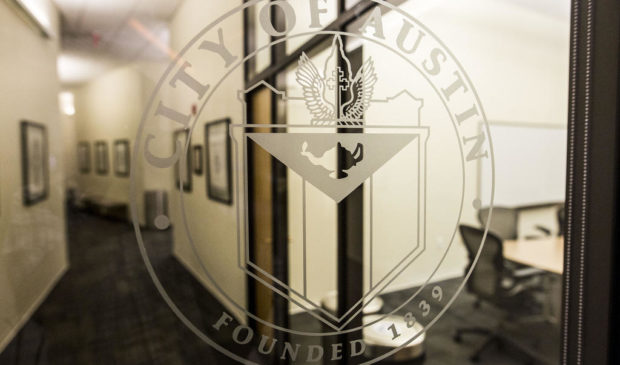Report lays out possible structure for new economic development corporation
Tuesday, August 11, 2020 by
Chad Swiatecki A consultant’s report recommends the city move to create an economic development corporation modeled after existing bodies in New York City, Philadelphia and Atlanta to allow for fast and flexible development deals around the city.
The report from QBL Partners presents possible next steps for the EDC effort, which has been brewing behind the scenes since 2014. The entity, which would be created and overseen by City Council and serve to meet Council objectives, would operate outside of the city’s regulatory framework and is seen as a way to address redevelopment needs related to affordability and preservation of creative spaces.
QBL’s report suggests the EDC serve as an umbrella entity with limited staff to start. It would contain a local development corporation to handle real estate deals, a cultural trust for nonprofit partnerships and the legal framework of the preexisting Austin Industrial Development Corporation to take advantage of that body’s bond financing capabilities.
The EDC would be funded initially with money allocated to the city’s Economic Development Department, with development fees and other revenue from projects funding its operations after three years.
Staff members are aiming to make a full presentation to Council on Aug. 25, with feedback expected to shape the creation of articles of incorporation, bylaws, interlocal agreements and other related legal documents.
Council Member Ann Kitchen said she hopes Council can move forward quickly to create the EDC so the city can start to construct deals related to preserving space for arts groups and music venues.
“We really are in a dire situation that’s been made even worse by Covid because of what is happening to our cultural spaces and our music venues. We have got to step in and do something and we’ve determined we can’t do that through EDD or city staff,” she said. “So there’s a lot of opportunity in this all the way from the public-private partnerships with our cultural arts and music folks to extend the options and dollars available to preserve those spaces.”
Kitchen sees the EDC operating completely separate from the Economic Development Department, although both entities will have similar goals related to use of real estate and other city resources. While the report lists homelessness services as one possible use for an EDC, Kitchen said she’s hesitant to work outside of the city’s existing partnerships with nonprofit organizations focused on helping the homeless.
One better move, she said, would be using the EDC to construct development deals along South Congress Avenue to carry out the vision of the South Central Waterfront District.
“The bigger-picture issue is we create all of these plans like in South Central Waterfront and then we don’t have any mechanism to help make them happen, and the planning gets wasted as a result,” she said. “That makes sense to me as a project that could be useful.”
David Colligan, manager of global business expansion in the EDD, said in the past the city has been unable to participate in potential business and real estate deals that could have addressed affordability and other city priorities. The creation of the EDC is expected to allow an arm of the city to move quickly while its board and staff will still be accountable to Council.
“We’ve heard from stakeholders that there are a number of times where they were looking at ramping forward or had proposed to the city a project looking for interaction or engagement but we weren’t able to realize those opportunities,” he said.
“I compare this time we’re in now to some of the major decisions made in 2003 when we were having a recession and we put Opportunity Austin in place and put economic policies in place to work on a vision to get us out of that situation. When we look back in 20 years we will see the creation of this entity as being as powerful and impactful a decision as those were.”
The Austin Monitor’s work is made possible by donations from the community. Though our reporting covers donors from time to time, we are careful to keep business and editorial efforts separate while maintaining transparency. A complete list of donors is available here, and our code of ethics is explained here.
You're a community leader
And we’re honored you look to us for serious, in-depth news. You know a strong community needs local and dedicated watchdog reporting. We’re here for you and that won’t change. Now will you take the powerful next step and support our nonprofit news organization?









